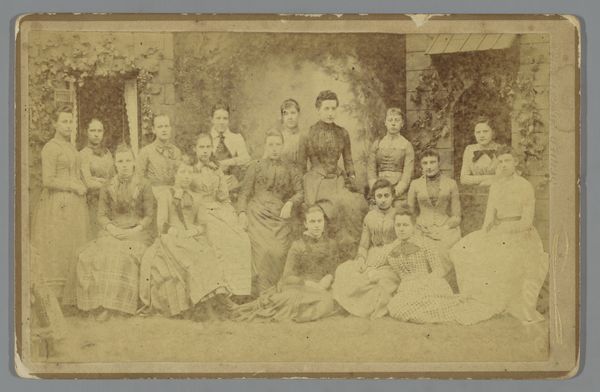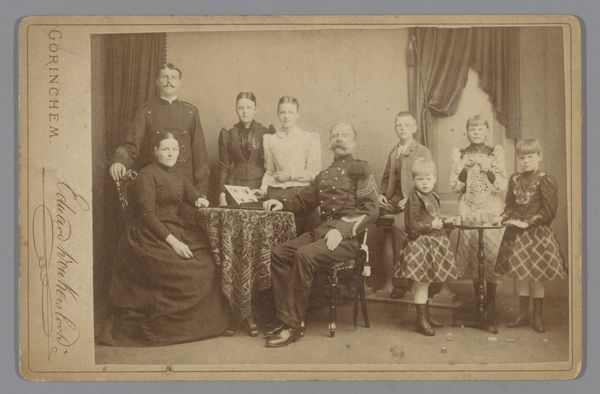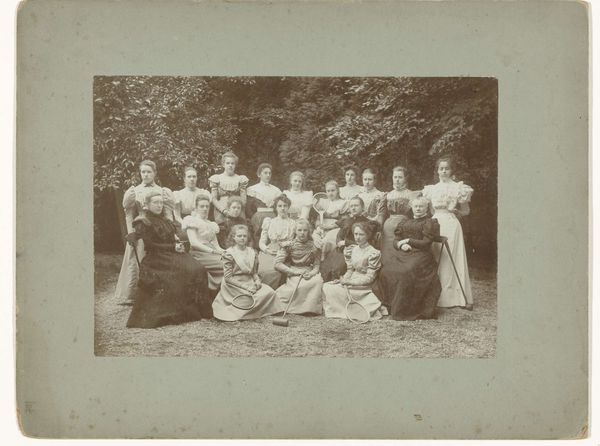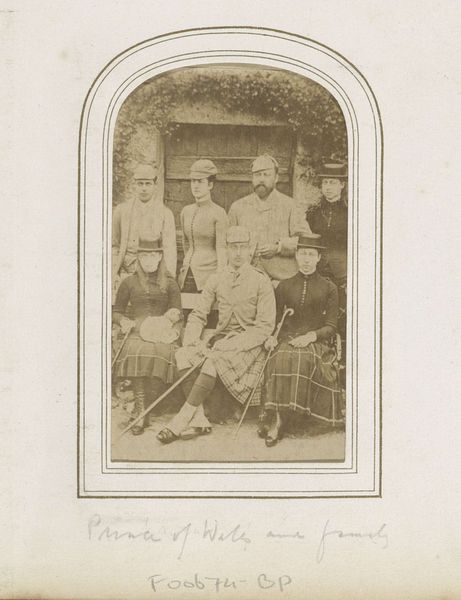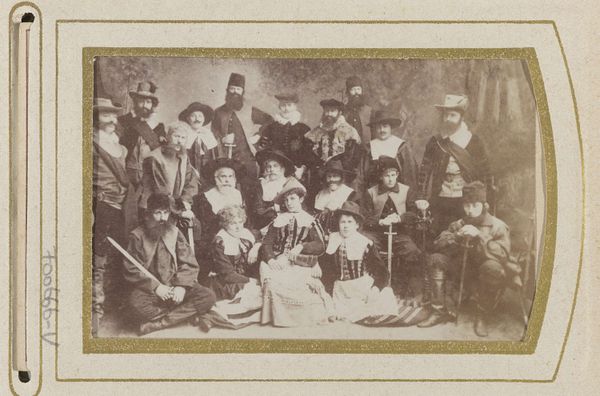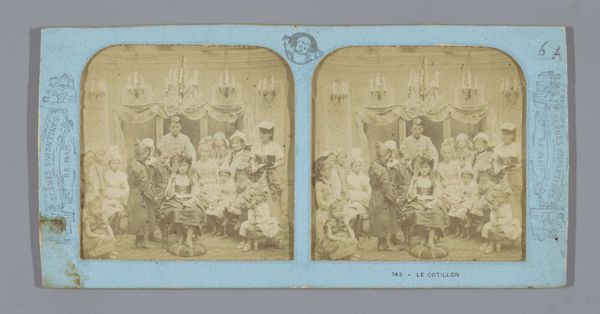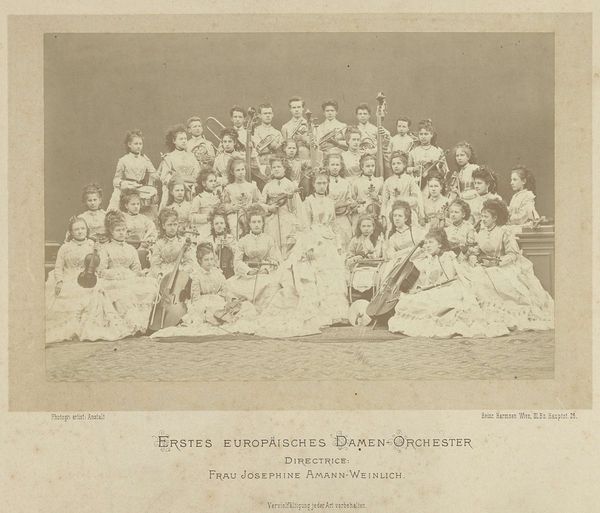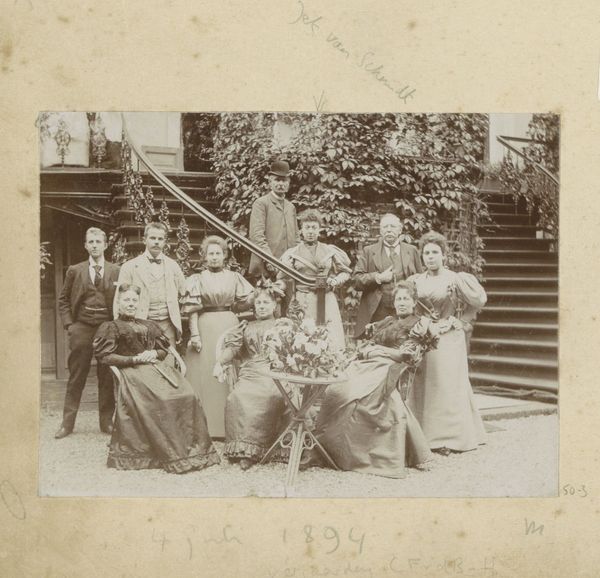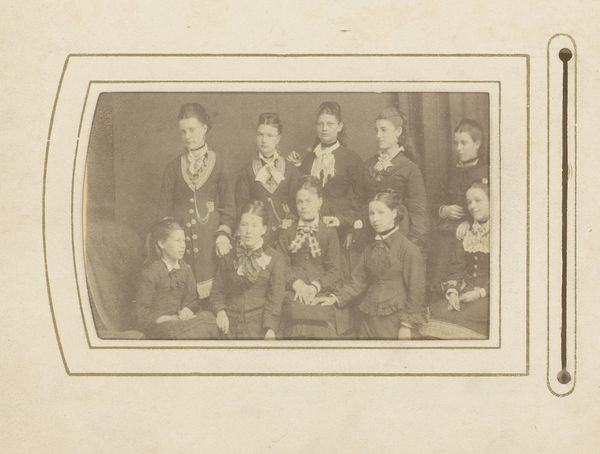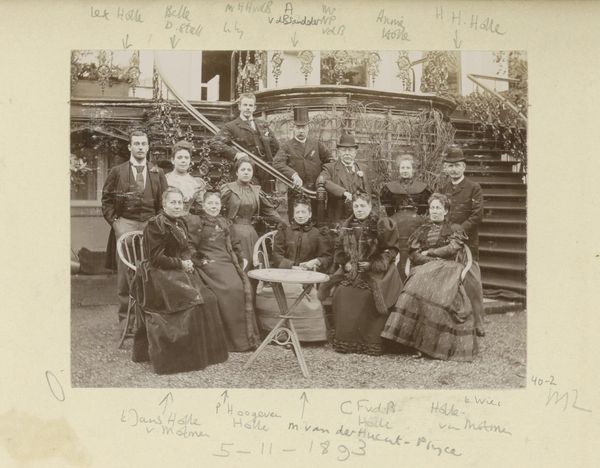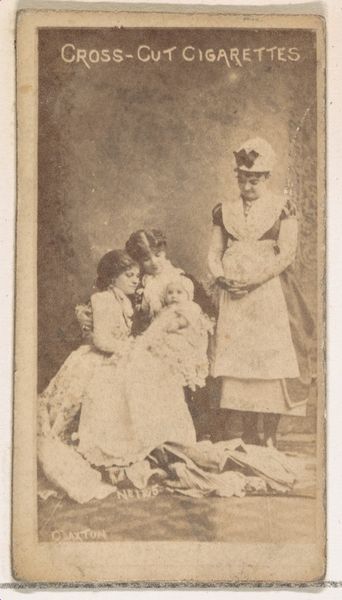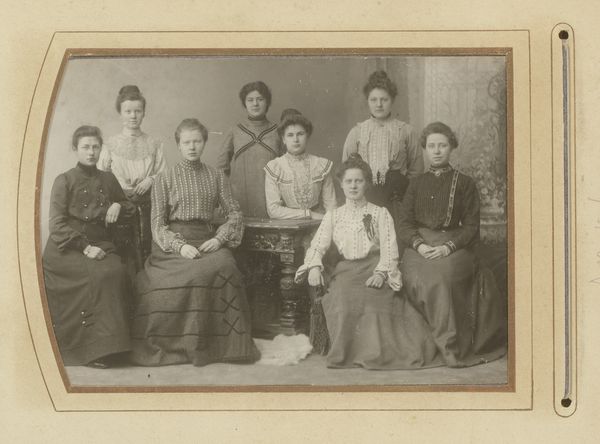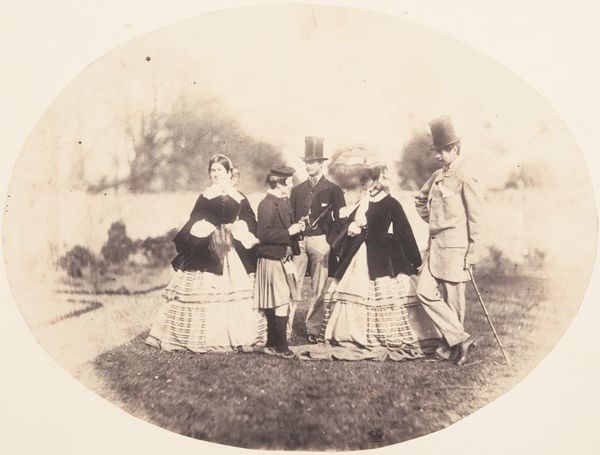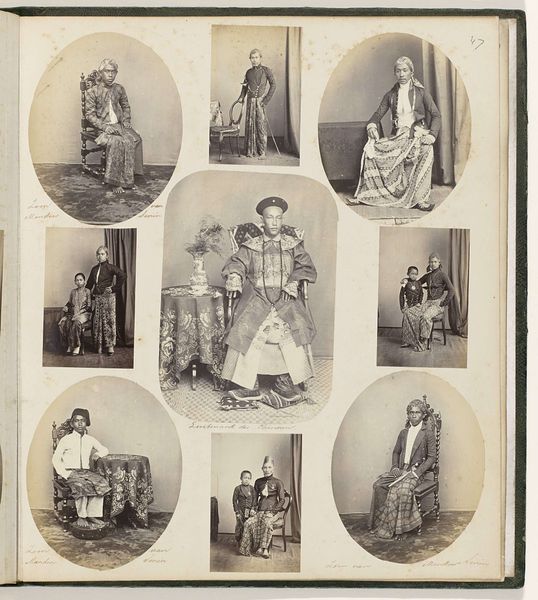
photography
#
portrait
#
impressionism
#
archive photography
#
photography
#
historical photography
#
19th century
#
genre-painting
Dimensions: height 85 mm, width 51 mm
Copyright: Rijks Museum: Open Domain
Curator: Looking at this piece, I am immediately struck by its curious blending of exoticism and what appears to be staged theatricality. Editor: It's true, there's an odd mix there. We're looking at "Groepsportret van Zweedse actrices gekleed als odalisken", or Group Portrait of Swedish Actresses Dressed as Odalisques. This photograph by Gösta Florman was taken in 1876 and resides here at the Rijksmuseum. The sepia tones give it such a dreamlike feel. Curator: The photograph is definitely indicative of a specific social trend, wouldn't you say? The vogue for orientalism clearly played a key role here, evidenced by the studio props and the women's adopted 'odalisque' costumes. The image highlights the socio-political context in which Western cultures consume and reshape imagery from the East. Editor: Absolutely. And in examining its production as an object, notice how the photographer crafts this entire fantasy, controlling not just the composition, but also manipulating the viewers' perceptions of the portrayed women. I wonder how readily these kinds of costume and props would be acquired? How widespread would it be as a pursuit of bourgeois photography and self-staging? Curator: That's very astute. Consider, too, the power dynamics in play. Who exactly are these Swedish actresses portraying and for whose consumption? It speaks to the colonial gaze that pervades much of nineteenth-century visual culture. It is essential to unpack these elements to gain a critical understanding of its significance. Editor: Yes, but it's also an instance of roleplay that likely brought those actresses pleasure. It feels like play and an exoticism and an example of the developing photography market and the way theatre played a part in this growth. What's striking is this odd, layered history that speaks to so many cross-cultural engagements. Curator: A fascinating consideration of process, definitely! Ultimately, though, it remains important to see that art, whether photography or painting, does not exist in a vacuum, it actively plays a role in shaping societal beliefs and power relations. Editor: Indeed, by acknowledging these dynamics we arrive at a much more complete vision of the moment in time this photo captures.
Comments
No comments
Be the first to comment and join the conversation on the ultimate creative platform.
